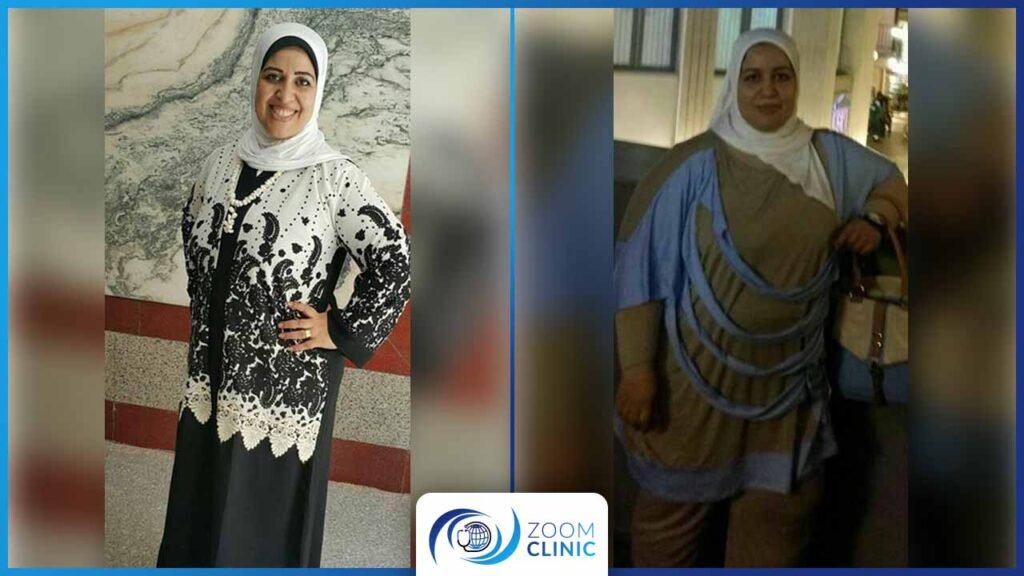Gastric bypass surgery is a common and highly effective procedure for long-term weight loss, particularly for those battling obesity. With its rising popularity worldwide, Türkiye has become a leading destination for this surgery, owing to its world-class medical facilities, experienced surgeons, and affordable healthcare. However, as with any major surgery, gastric bypass carries potential risks and complications. Understanding these risks is crucial, especially for international patients considering Türkiye for their weight loss journey.
In this article, we will explore the various Gastric Bypass Surgery Risks in Türkiye, focusing specifically on the Turkish healthcare landscape. Zoom clinic is committed to ensuring patient safety and delivering the highest quality care. We aim to address key concerns about safety, potential complications, and the success rate of the surgery, so you can make an informed decision.
Table of content
1. What Is Gastric Bypass Surgery?
Gastric bypass surgery, also known as Roux-en-Y gastric bypass, is a procedure designed to help patients lose weight by altering the digestive system. It reduces the size of the stomach and reroutes a portion of the small intestine, which limits food intake and reduces calorie absorption. It is often recommended for patients with a Body Mass Index (BMI) of 40 or higher, or those with serious obesity-related health issues like Type 2 diabetes or high blood pressure.
This procedure is popular in Türkiye because of its high success rate, affordability, and the expertise of local surgeons. However, as with any surgical intervention, it’s important to consider the gastric bypass surgery risks and the recovery process.
2. Common Risks of Gastric Bypass Surgery
Despite its many benefits, gastric bypass surgery does come with certain risks. It’s essential to be fully informed about these before opting for the procedure. Here are the primary risks of gastric bypass surgery in Türkiye:
a. Surgical Complications
- Infection: As with any surgery, there is a risk of infection at the incision sites. Proper aftercare and following your surgeon’s instructions are crucial to minimizing this risk.
- Blood Clots: Post-operative blood clots are a common risk, particularly in the legs (deep vein thrombosis). This risk can be mitigated with blood-thinning medications and early mobilization.
- Leaks at the Staple Line: The surgical procedure involves creating a small stomach pouch, which is stapled to ensure durability. However, there is a slight risk that these staples may leak, leading to further complications.
b. Nutritional Deficiencies
Due to the altered digestive system, patients may experience deficiencies in essential nutrients like iron, calcium, vitamin B12, and vitamin D. This occurs because the small intestine, which is responsible for absorbing most of the nutrients, is bypassed.
c. Dumping Syndrome
Dumping syndrome occurs when food moves too quickly from the stomach to the small intestine, causing symptoms such as nausea, vomiting, diarrhea, dizziness, and sweating. Patients can avoid this by following a specialized post-surgery diet.
d. Ulcers and Stomach Blockages
In some cases, ulcers can develop along the staple line or where the stomach is connected to the intestines. Additionally, scar tissue formation may result in blockages, which can be painful and may require further surgery.
3. Is Gastric Bypass Surgery Safe in Turkey?
One of the most common questions patients ask is: Is gastric bypass surgery safe in Turkey? The answer is yes, as long as the procedure is performed by experienced, board-certified surgeons in accredited hospitals. Türkiye is home to some of the best medical professionals and facilities in the world, and it is a top destination for medical tourism.
Our clinic has over 10 years of experience, and we have successfully performed thousands of gastric bypass procedures with a high success rate. However, the safety of the surgery also depends on factors such as the patient’s health, adherence to post-operative care instructions, and lifestyle changes following surgery.
4. The Success Rate of Gastric Bypass Surgery in Türkiye

The success rate of gastric bypass surgery in Türkiye is generally high, with most patients losing 60-80% of their excess weight within two years of surgery. However, long-term success depends on the patient’s commitment to maintaining a healthy lifestyle, including regular exercise and a balanced diet. Patients who adhere to these guidelines can expect significant improvements in their overall health, including the resolution of conditions like Type 2 diabetes, hypertension, and sleep apnea.
5. Gastric Bypass vs. Gastric Sleeve: Which is Riskier?
When choosing between gastric bypass and gastric sleeve surgery, many patients want to know which procedure poses fewer risks. Both surgeries are effective for weight loss, but they carry different risks. Gastric sleeve surgery involves removing a portion of the stomach, while gastric bypass alters both the stomach and the intestines.
- Gastric bypass surgery tends to have a higher risk of nutritional deficiencies due to the malabsorption of nutrients, but it often results in more significant weight loss compared to the gastric sleeve.
- Gastric sleeve surgery is simpler and has fewer potential complications, but patients may still face risks such as leaks or the development of acid reflux.
Ultimately, the choice between the two surgeries should be made after a thorough consultation with your surgeon, considering your unique medical history and weight loss goals.
6. Post-Operative Care and Long-Term Risks
Post-operative care is crucial to the success of the surgery. The first few weeks require a liquid diet, gradually progressing to soft foods. Patients must take vitamin and mineral supplements to prevent deficiencies. Failure to adhere to the post-operative guidelines can lead to complications such as malnutrition, bowel obstruction, and even the need for revision surgery.
Post-gastric bypass complications may also include long-term issues such as:
- Chronic Nausea
- Bowel Obstruction
- Hernias
- Gastrointestinal Leaks
7. Choosing the Best Clinic for Gastric Bypass Surgery in Türkiye

Selecting the right clinic is one of the most important decisions in your weight loss journey. Türkiye has a reputation for having some of the best clinics for gastric bypass surgery, many of which are accredited by international bodies. When choosing a clinic, it’s essential to consider the following:
- Experience: Ensure that your surgeon has a proven track record in performing gastric bypass surgeries. Our clinic boasts over 10 years of experience in weight loss surgery, with hundreds of satisfied patients.
- Accreditation: Check if the hospital or clinic is accredited by international health organizations, ensuring they follow global standards of safety and patient care.
- Patient Reviews: Reading weight loss surgery reviews from previous patients can provide valuable insights into the quality of care you can expect.
8. Why Choose Turkey for Your Gastric Bypass Surgery?
Türkiye has emerged as a top destination for health tourism, thanks to its advanced healthcare system, affordability, and highly skilled surgeons. Patients from around the world come to Türkiye for gastric bypass surgery due to the following reasons:
- Affordable Costs: Gastric bypass surgery in Türkiye is significantly more affordable than in countries like the USA or UK, without compromising on the quality of care.
- Experienced Surgeons: Turkish surgeons are highly trained, often with international certifications, ensuring top-notch care.
- Comprehensive Aftercare: Clinics in Türkiye offer comprehensive aftercare packages, including follow-up consultations, dietary advice, and support groups to ensure a smooth recovery.
Why Choose Zoom Clinic for Gastric Bypass Surgery?
Zoom Clinic is the ideal choice for gastric bypass surgery in Turkey, thanks to our over 10 years of experience in providing top-quality medical care to patients from around the world. We take pride in our team of internationally certified surgeons, who use the latest technologies to ensure the highest levels of safety and effectiveness in every procedure. We offer a comprehensive patient experience, including personalized consultations, thorough aftercare, and integrated nutrition plans to ensure lasting results. Additionally, we excel in providing exceptional services for international patients, including accommodation and transportation assistance, making your treatment journey comfortable and smooth. Choose Zoom Clinic for the best outcomes and a confident step toward improving your quality of life.





Conclusion
Gastric bypass surgery in Türkiye is a safe and effective option for individuals struggling with obesity. While there are risks associated with the procedure, these can be minimized by choosing an experienced clinic, following post-operative care instructions, and committing to a healthier lifestyle. With over 10 years of experience, our clinic ensures the highest standards of care, making us one of the best clinics for gastric bypass surgery in Türkiye.
If you are considering weight loss surgery in Türkiye, don’t hesitate to contact us for a consultation. We’re here to guide you every step of the way in your journey toward better health.
Get the special offer today from Zoom Clinic
FAQs (Frequently Asked Questions) about Gastric Bypass Surgery at Zoom Clinic
1. What is the recovery time after gastric bypass surgery?
Recovery time can vary from patient to patient, but most individuals can return to light activities within 2-3 weeks. Full recovery, including the ability to resume normal activities and exercise, typically takes around 4-6 weeks. At Zoom Clinic, we provide detailed post-operative care instructions to ensure a smooth recovery process.
2. Will I need to follow a special diet after the surgery?
Yes, after gastric bypass surgery, it’s essential to follow a specific diet plan. Initially, patients will be on a liquid diet, progressing to soft foods, and eventually solid foods. The goal is to help the body adjust and to avoid complications like dumping syndrome. Zoom Clinic provides a personalized nutrition plan and ongoing support to help you succeed post-surgery.
3. How much weight can I expect to lose after the surgery?
On average, patients lose between 60-80% of their excess body weight within the first 12-18 months following gastric bypass surgery. Individual results may vary based on factors such as adherence to dietary recommendations and physical activity. Zoom Clinic ensures continuous monitoring and support throughout your weight loss journey.
4. Are there any risks involved with gastric bypass surgery?
Like any major surgery, gastric bypass carries some risks, including infection, blood clots, and nutritional deficiencies. However, at Zoom Clinic, we prioritize patient safety and follow strict protocols to minimize risks. Our experienced surgeons and advanced facilities further enhance the safety and success of the procedure.
5. Why is Turkey a popular destination for gastric bypass surgery?
Turkey is known for its high-quality healthcare at competitive prices, making it a popular destination for medical tourism. At Zoom Clinic, we combine world-class expertise, cutting-edge technology, and comprehensive care with affordable pricing, providing an ideal solution for patients seeking safe and effective gastric bypass surgery in Turkey.
Read Also:
Duodenal Switch SADI-S: a Comprehensive Guide


